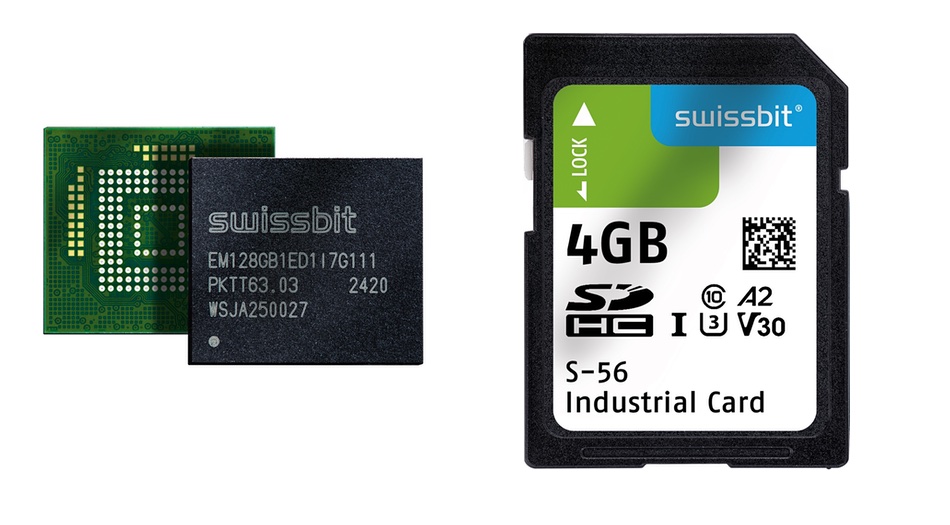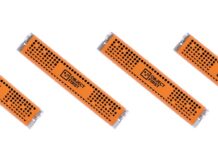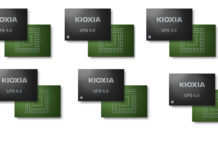Data protector Acronis has released its Mid-Year Cyberthreats Report, From Innovation to Risk: Managing the Implications of AI-driven Cyberattacks. It found that there were 809 publicly mentioned ransomware cases in Q1 2023, with a 62 percent spike in March over the monthly average of 270 cases. 30.3 percent of all received emails in the quarter were spam and 1.3 percent contained malware or phishing links. Phishing remained the most popular form of stealing credentials, making up 73 percent of all attacks. Business email compromises (BECs) were second at 15 percent.
…
Analytics supplier Amplitude has launched a Snowflake-native product that utilizes Snowpark Container Services (private preview) to enable analysis inside a customer’s Snowflake instance. Capabilities and integrations include:
- Automated instrumentation and reporting: Instantly track user activity and baseline metrics like daily active users, average session length, and geolocation with Amplitude’s enhanced SDK.
- Industry-specific reporting templates: Customers can discover product insights tailored to their business with reporting templates that include industry-specific key metrics.
- AI-assisted data governance: Maintain and continually improve data quality with automation and intelligent suggestions.
- Expanded partner integrations: Quickly send data to other parts of your stack with expanded integrations with Braze, Hubspot, Intercom, Marketo, and more.
Sign up for the Early Access Program for Snowflake-native Amplitude here.
…
Data protector Cobalt Iron has been awarded US Patent 11636207 which enables automated health remediation of various failures and conditions affecting storage devices and backup operations. The patent will enable the discovery of interdependencies between various components of a backup environment (such as storage devices at multiple locations including the cloud), monitoring of failures and threat conditions, impact analysis to interrelated components, and automated health remediation actions. It incorporates health issues specific to storage devices that will automatically trigger remediation actions, and will be implemented in Cobalt Iron’s Compass enterprise SaaS backup offering.
…
Data integrator Crux has expanded its partnership with Databricks by adding pre-integration services to its existing Partner Connect integration. It is connecting 75 financial and alternative data sources to the Databricks Marketplace, making it easier for consumers to access analytics-ready external datasets. Through Databricks Delta Sharing, data suppliers partnered with Crux are sharing traditional financial datasets (including credit risk, stock exchange/equity pricing, corporate actions reference, and index data) and alternative datasets (including sentiment and ESG) securely with customers.
…
Data lakehouse supplier Dremio has announced new features for querying, performance, and compatibility enhancements that include:
- Iceberg table optimization with SQL commands such as OPTIMIZE, ROLLBACK and VACUUM to optimize performance and streamline data lake management.
- 40 percent better data compression with native Zstandard (zstd) compression.
- Tabular UDFs: Tabular User-Defined Functions enable users to extend the native capabilities of Dremio SQL and provide a layer of abstraction to simplify query construction.
- New mapping SQL functions: CARDINALITY returns the number of elements in a map or list and helps customers moving array workloads from Presto and Athena; ST_GEOHASH returns the corresponding geohash for the given latitude and longitude coordinates; FROM_GEOHASH returns the latitude and longitude coordinates of the center of the given geohash. Both geohash functions help customers move workloads from Snowflake, Amazon Redshift, Databricks, and Vertica. Geohashing guarantees that the longer a shared prefix between two geohashes is, the spatially closer they are together.
- Dremio now supports multiple Delta Lake catalogs including Hive Metastore and AWS Glue, providing a unified data lake experience across the organization.
…
Struggling data protector FalconStor is to move from the OTCQB tier to the Pink Current tier, both operated by the OTC Market Group. The public compliance costs are too high compared to its revenues. FalconStor’s board has determined that the burdens associated with operating as a registered public company outweigh any advantages to the company and its stockholders. It will continue to provide sufficient information to its shareholders in order to continue enabling a trading market for its common stock within the OTC Pink Current trading market. This means FalconStor will no longer have to issue quarterly revenue reports.
…
Tom’s Hardware reports that Intel has extended the end-of-life period for its Optane PMem 100 drives from September 30 to December 29 this year. An Intel statement to customers said: “Customers are recommended to secure additional Optane units at the specified 0.44 percent annualized failure rate (AFR) for safety stock. Intel will make commercially reasonable efforts to support last time order quantities for Intel Optane Persistent Memory 100 Series.”
…
SaaS cloud data protector Keepit, with a blockchain-verified system, has announced a backup and recovery service for Microsoft Azure DevOps. It protects Azure DevOps Boards (including work items, boards, backlogs, team sprints, queries, and delivery plans), Pipelines data and metadata. Keepit provides immutable storage of data in its ISO 2700-certified private cloud, providing long-term immutable archive or escrow copy of sensitive ADO data.
…
Information management supplier M-Files says it’s been recognized by customers as a Strong Performer in the June 2023 Gartner Peer Insights ‘Voice of the Customer’: Content Services Platforms report. It’s one of four vendors in the report to receive the distinction. You can download a complimentary copy of the report here (registration required).
…
The Protocol Labs/Filecoin Distributed Storage Alliance (DSA) has launched Golden Gate, an advanced software and reference configuration which it says reduces the costs associated with decentralized file storage by almost half (40 percent). The Filecoin Network relies on “sealing”; computations performed on the data being onboarded in order to ensure network security and enable cryptographic proving, verifiability, and data immutability. Open source Golden Gate directly addresses this issue and reduces the server costs associated with sealing by up to 90 percent. The only known DSA members are Protocol Labs, the Filecoin Foundation, AMD, Seagate, and consultancy EY.
…
Storage supplier Solidigm is talking up its coming 60TB QLC SSD in a E3.S enclosure, saying Supermicro’s Petascale server platform will use it to provide a petabyte in its 1RU form factor. These Supermicro servers have 16 x E3.S slots. Therefore we can say that an individual Solidigm E3.S QLC drive will have a 62.5TB capacity or, more likely, 60TB with the petabyte claim being a rounding-up calculation. DDN talked about coming 60TB SSDs in May. Solidigm has clearly been talking to its OEM partners. We expect it to formally announce its 60TB SSDs in a few weeks.
…
Swissbit has introduced e.MMCs and SD memory cards with capacities ranging from 4 to 8 GB using 3D-NAND in TLC format. It says they’re optimized for power failure protection, industrial reliability, and high endurance, and rival the performance of more expensive SLC models and outperform corresponding MLC variants. There are EM-30 and S-56(u) Series products.

The EM-30 product series (153 ball BGA) complies with e.MMC-5.1 specifications, and is designed for an extended temperature range of -40°C to 85°C and is suitable for use in harsh environmental conditions. The range offers sequential data rates of up to 280MBps read and 120MBps write, as well as 11k IOPS random read and 16k IOPS random write.
The S-56(u) SD and microSD memory cards attain sequential read and write data rates of 95MBps and 74MBps respectively. The cards are optimized for high-performance applications with random read IOPS of 2,200 and random write IOPS of 1,300. With advanced over-provisioning and pSLC technology, the S-56 series offers the highest endurance for write-intensive workloads. Combined with up to 100,000 PE cycles, its endurance for small data logging even surpasses that of an SLC card for the first time.
…

Toshiba Electronics Europe GmbH has announced Peter Lieberwirth as president and CEO, effective July 1. He takes over from Tomoaki Kumagai, who has been promoted to a global role as Corporate Vice President, General Executive, Global Strategy & Business Development, Japan.
…
Weebit Nano and SkyWater have announced that Weebit’s ReRAM IP is now fully qualified in SkyWater’s 130nm CMOS (S130) process. The Weebit ReRAM IP was qualified for:
- High endurance: 10K flash-equivalent cycles
- Data retention: 10 years at industrial grade temperatures
- Retention after cycling, exhibiting robust lifetime performance
- 3x SMT solder reflow cycles
Weebit ReRAM technology in S130 is an ultra-low power, radiation tolerant and fast NVM that companies can use in developing highly integrated SoCs for applications including analog/mixed-signal, IoT, automotive, industrial, medical and more.








